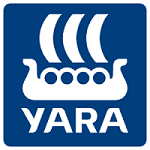
Soils in Practice Speakers
North
Allen Scobie
Allen is a past chairman of the Association of Independent Crop Consultants (AICC), the official UK national body for independent crop consultants. He is also an honorary memeber of the National Alliance of Crop Consultants (NAICC), the official body for independent crop consultants in North America (United States and Canada). Allen is a founding chairman of the Global Alliance of Independent Agricultural Consultants (GAIAC), the global body for independent crop consultants to share knowledge and crop production methods.
He has studied crop production methods in the UK, Western and Eastern Europe and North America. He has extensive experience in crop production and trials work and has a keen interest in soil structure, soil health, plant physiology and plant health. As well as advising groups of farmers in Central Scotland, he supports a number of Ukranian and Russian agriholdings delivering training and agronomic knowledge transfer to their agronomists and farm directors.
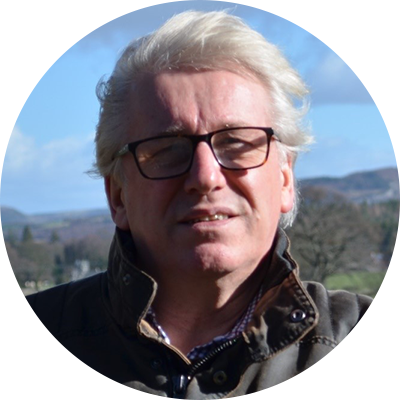
Allen Scobie
Bridgend Consultancy Services
Audrey Litterick
Audrey is a practical crop and soil scientist who specialises in soil assessment, soil management and the use of fertilisers and organic materials (including composts and digestates) on land. She works with inorganic and organic waste processors to develop and optimise quality products and by-products such as composts and anaerobic digestates. She also works with farmers and other land managers to ensure the safe, effective use of composts, digestates, animal manures and a range of organic wastes, by-prodcuts and products on farmland and in the restoration of land degraded through opencast mining.
Key interests lie in the practical measurement of soil health and the development of methods to maintain and improve the health of agricultural soils and soils restored for agriculture, forestry and amenity. She has contributed to several definitive guidance documents on the use of fertilisers and organic materials in agriculture and horticulture and in the restoration of brownfield land.
Audrey worked at Scottish Agricultural College and Aberdeen University for almost 20 years, developing sustainable and organic crop production methods before leaving in 2010 to join Earthcare Technical.
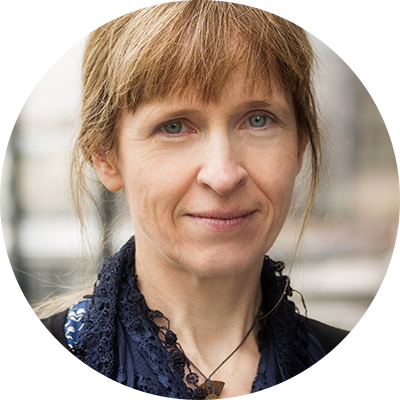
Audrey Litterick
Practical Crop & Soil Scientist
Dr. Jonathan Holland
Dr. Jonthan Holland is a research agronomist at The James Hutton Institute with an interest in understanding the effects of soil properties on crops. Dr. Holland has more than 15 years’ expereicne in field-based agronomic-type research and has developed an extensive knowledge of temperate-region cropping systems within the UK and Australia.
Main research interests include soil fertility (including soil P & K, soil acidity and liming), management practices and precision agriculture. Understanding the ‘how and why’ of agricultural production systems has been central to his previous research activities. Within the development of new technology, interests include how to utilise new soil and crop monitoring and evaluation techniques. This includes using proximal sensors, geophysical instruments and unmanned aerial vehicles to explore spatial patterns.
Jonathan is keen to explore and test innovative options (e.g. new practices or varieties) for cropping that assist with the various challenges farmers face today, contributing to improved understanding and solutions that improve arable practices.
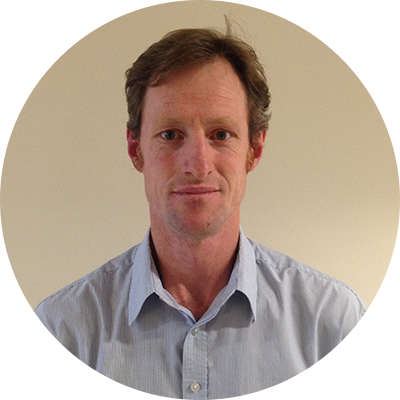
Dr. Jonathan Holland
Research Agronomist
The James Hutton Institute
Professor Chris Collins
Professor Chris Collins is Chair of Environmental Chemistry at the University of Reading. He is the Natural Environment Research Council Soils Coordinator overseeing a £10 million research investment to improve our understanding of how soils resist, recover and adapt to land use and climate change.
Collins chairs the Department for Environment, Food and Rural Affairs Hazardous Substances Advisory Committee providing expert advice to the UK Government on how to protect the environment from chemicals. He is also a member fo the UK Natural Capital Committee which supports the implementation of England’s 25yr Environment Plan.
His research focusers on determining the factors controlling exposure of biota to environmental pollution and recent research has focused on the role of soil organic carbon in modifying pollutant exposure and the parallels between pollutant and carbon cycling in soils using high level analytical techniques such as mass spectrometry and nuclear magnetic resonance. This work has been supported by a wide range of funders across industry, government and research bodies.

Prof. Chris Collins
Chair of Environmental Chemistry
University of Reading
Steve Larocque
Steve is an independent crop advisor based out of Three Hills, Alberta. As owner of Beyone Agronomy, he provides strategic advice on crop production, timing, technology and equipment. Steve works with farmers around the world from Ukraine to Kenya, Australia to Canada.
Steve is a first generation grain farmer and runs a no-till controlled traffic and fencerow farming system. He’s run a 9M CTF system since 2010 and plants canola, wheat, barley, peas, lentils and faba beans in rotation. He is a 2007 Canadian Nuffield Scholar and international speaker.
Steve began controlled traffic farming in 2010 after completing his Canadian Nuffield Scholarship on CTF in 2009 and was the first to fully implement CTF in Western Canda. Steve was involved with the Controlled Traffic Farming Alberta (CTFA) project that involved the comparison of CTF beside conventional no-till systems. The project looked at soil structure, water infiltration, weed pressure, soil biology, yield and the economics between conventional no-till and CTF with no-till. Steve will discuss his journey through CTF and fencerow farming.
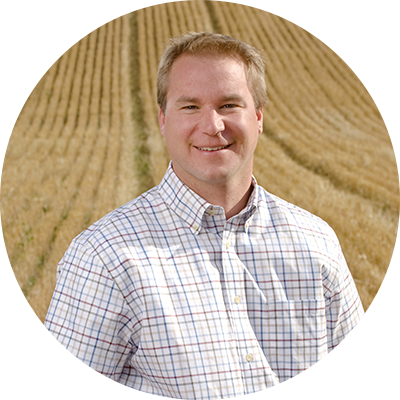
Steve Larocque
President
Beyond Agronomy
Tim Chamen
Tim Chamen trained as an agricultural engineer and spent 25 years at Silsoe’s Institute of Agricultural Engineering Research where he worked on tillage tool development and the effects of machinery compaction on soil and crop responses over a period of ten years. As part of the compaction experiment, he project managed development of an experimental 12m gantry tractor for field-scale trials.
Since leaving Silsoe in 1996 he has worked independently, undertaking contracts for machinery manufacturers in the UK and US, the EU, a UK producer-funded body, Natural England and others.
Always maintaining the thread of avoiding compaction damage to soils, in 2004 he initiated a 6-year field demonstration of controlled traffic farming (CTF) in the UK in partnership with John Deere, Unilever and Dale Drills. Since then Tim has worked independently to promote CTF in the UK and with partners across mainland Europe. This involved running farm-based workshops, training days and producing web-based information for a CTF member organisation. The CTF network is now supported by the NIAB.
In 2011, he recieved a doctorate from Cranfield University covering the impact of field traffic on soils and crops, and the profitability of CTF systems.
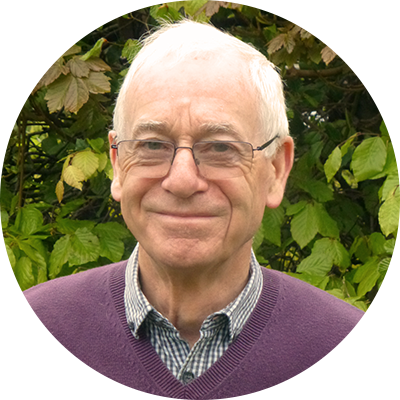
Tim Chamen
Agricultural Engineer
Charlie Reynolds
Charlie is from a farming family in Northamptonshire. After graduating from the RAC in 1991, Charlie started his farming career as an assistant manager on a 1,000ha cereal and beef farm in Leicestershire before returning to the family farm in 1995.
The business increased in size and in the early 2000’s with pressure on farm incomes, the decision was taken to become part of a joint venture arable business, with three local farming families. This allowed Charlie to work more widely, passing his BASIS Facts qualification while also completing further CPD courses.
While working part-time in consultancy, particulary precision farming, the opportunity arose to be the interim Farm Manager at Courteenhall Farms, eventually turning into a full-time role. Courteenhall Farms now contract farm his home farm after the disolution of the joint venture farming business.
Charlie Reynolds
Farm Manager
Courteenhall Farms
Dr Joanna Cloy
Dr Joanna Cloy is a soil scientist currently working as a researcher at Scotland’s Rural College. Joanna completed her PhD in environmental geochemistry at Edinburgh University in 2006, after which she worked as a research fellow and then a lecturer at Edinburgh University.
Joanna’s current soil research centres around agricultural systems under different management activities, assessing soil structure (VESS) and quality, greenhouse gas emissions, carbon and nutrient dynamics. She also delivers knowledge exchange workshops and teaches Edinburgh University postgraduate and undergraduate students.
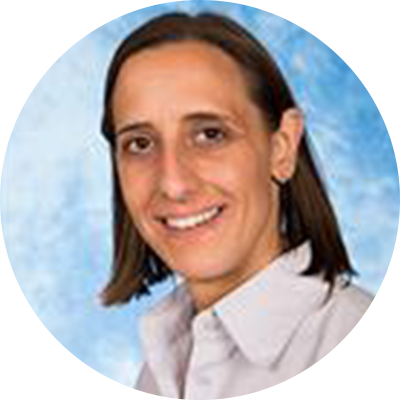
Dr Joanna Cloy
Soil Sceintist
SRUC
Professor Jennifer Dungait
Jenni Dungait runs an independent soil science consultancy “Soil Health Expert” and is an Honorary Professor at SRUC, an Assistant Professor at the University of Exeter, and the Editor-In-Chieef of the European Journal of Soil Science. In this unique position, she straddles the interface between academic research and practical application in industry and has developed strong working relationships with farmers across the sector in the UK.
With a PhD in Organic Geochemistry and a MSc in Crop Protection, jenni has nearly 20 years’ experience of the application of hard science to problems of soil management in agriculture. In particular, she has a global reputation for expertise in soil organic matter management, including soil carbon sequestration in farming systems.
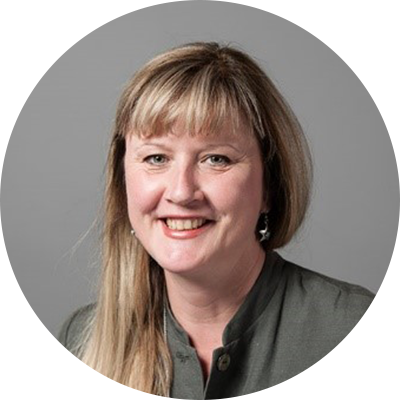
Professor Jennifer Dungait
Independent Soil Science Consultant
Soil Health Expert
Chris Martin
Chris Martin grew up on a small family farm on Teesside. He graduated from Newcastle University with a degree in Agriculture with honours in agronomy in 1994. Following graduation, Chris travelled as a spray operator and tractor driver. It was whilst cultivating land in Western Australia that he first realised how vulnerable soil could be and how focussing on soil health had to be an integral part in driving long-term farm profitability. Since then soil health has been a passion of his.
Chris became an agronomist with Profarma on returning to the UK in 1996 and built up an area where he serviced up to 20,000ac of mainly combinable crops across the North Yorkshire-South Durham border. In 2011, he took on the role of Technical Manager for Agrovista for the northern half of the UK, and now heads up the organisation’s Soil and Precision Department. His role here involves developing ‘Agrovista Soil Health’, a programme designed to provide simple practical solutions to farmers in addition to hosting regular trials, presentations and training around all aspects of soil health. Chris is also a certified trainer for the new BASIS advanced quality of soils qualification.
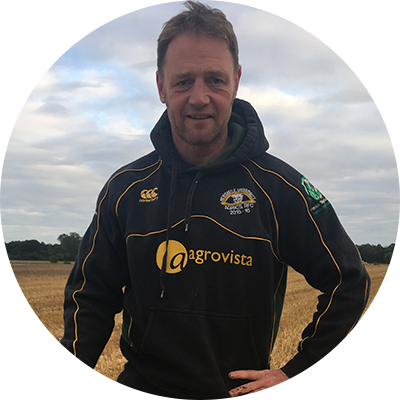
Chris Martin
Technical Manager
Agrovista
Helen Wilson
Helen Wilson is Head of Forage Crops at RAGT Seeds and is responsible for soil health plant, grass and maize sales across northern Europe. Over the last six years Helen has been working with industry partners to ensure farmers are getting clear, accurate information and advice on how to best improve their soil.
Helen has been involved in a number of research projects and PhD studies looking at many different aspects of soil health, understanding that farmers require robust field-based data in order to help them make the right decisions.
RAGT’s soil health breeding programmes focuses on producing high quality, nematode resistant brassicas as well as providing research into the soil benefits of many other species including phacelia, buckwheat, vetch and clovers.
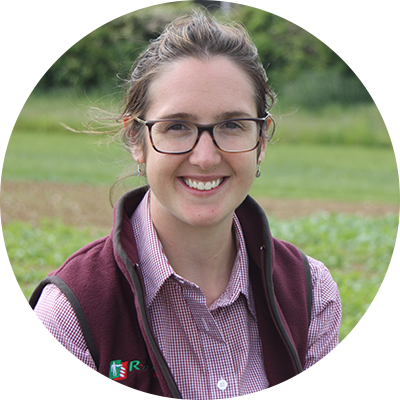
Helen Wilson
Head of Forage Crops
RAGT Seeds
Liz Bowles
Liz is Associate Director Farming and Land Use and is responsible for leading and managing our work with farmers, with agricultural technical, marketing, supply chain and networking queries. Liz has a wealth of experience of agriculture and food both in the UK and internationally. She has worked in the sector for over 20 years and brings a practical approach combined with scientific and sector knowledge to her role.
Liz is responsible for leading and managing the Soil Association’s work with farmers throughout the UK in conjunction with the Producer Support Team. The Producer Support Team work includes supporting Soil Association licensees, managing the Duchy Future Farming Programme Field Labs, implementation of development plans for organic agriculture in the UK and supporting organic supply chain development.
In her spare time Liz manages one of the largest pedigree flocks in the UK and combines this with being a Council member of the Breed Society.
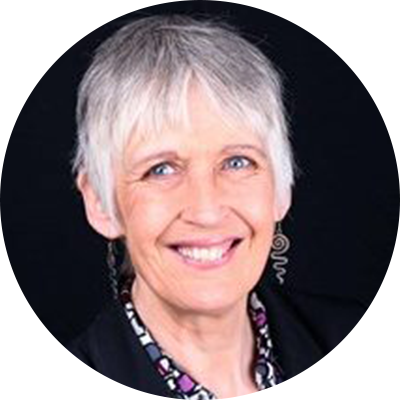
Liz Bowles
Associate Director Farming & Land Use
Soil Association
Jonnie Hall
Jonnie Hall has been involved with agricultural and rural policy for more than thirty five years, and is a graduate of the University of Newcastle-upon-Tyne (First Class BSc. Honours in Agricultural Economics and an M.Phil. in Agricultural Policy Research) and Oxford University (MSc. in Agricultural Economics). The protracted seven years of student life also allowed plenty of time for Jonnie to practice his real passions – farming and rugby.
Following an academic and consultancy career, Jonnie joined what was the Scottish Landowners’ Federation in 1998, leading their policy work on agriculture and land use issues. Jonnie then joined NFU Scotland in May 2007, and has overall responsibility for the policy work of NFU Scotland as Director of Policy. He has served on far too many stakeholder groups to ever count (or ever get that time back!) over the last twenty one years, but has become reasonably knowledgeable in all aspects of the agricultural and rural policy (especially in Scotland) in the process. He also thinks he’s developing an understanding of Scottish farming and Scottish farmers.
His life beyond NFU Scotland and the interests of Scottish agriculture revolves around his family, running up hills as a frustrated ex-rugby player, and a genuine interest in farming that occasionally means he does something useful for a change by gathering sheep.
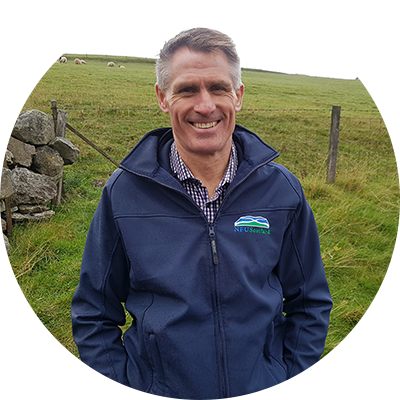
Jonnie Hall
Director of Policy
NFU Scotland
Philip Cosgrave
Growing up on the family beef and sheep farm in Ireland, Philip completed a degree in animal science at the University of Aberdeen before returning back to Ireland to work. There was an opportunity to travel and with his keen interest in farming, he soon found himself working on farms in Italy, New Zealand, Australia and Saudi Arabia. The experience of working in different and often harsh environments sparked an interest in crop nutrition and how healthy soils play an important role in good crops.
Since returning home Philip has worked as an agronomist and has been Yara’s grassland agronomist since 2016, having worked previously with IAS Laboratories. The concept of nutrient use efficiency is one that is key in Philip’s mind. By improving nutrient use efficiency we see benefits for the farmer and the environment. His role with Yara sees him working closely with farmers, either individually or in groups. It is clear there is increasing awareness among farmers about the environment, and how managing their farm can have an impact way beyond their farm gate. That’s why Philip believes it’s an exciting time to be an agronomist as they will have a positive role to play in this transition.
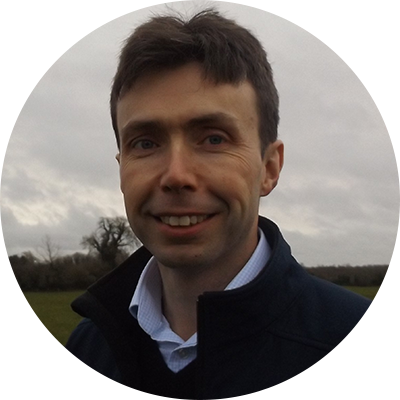
Philip Cosgrave
Agronomist
Yara UK
